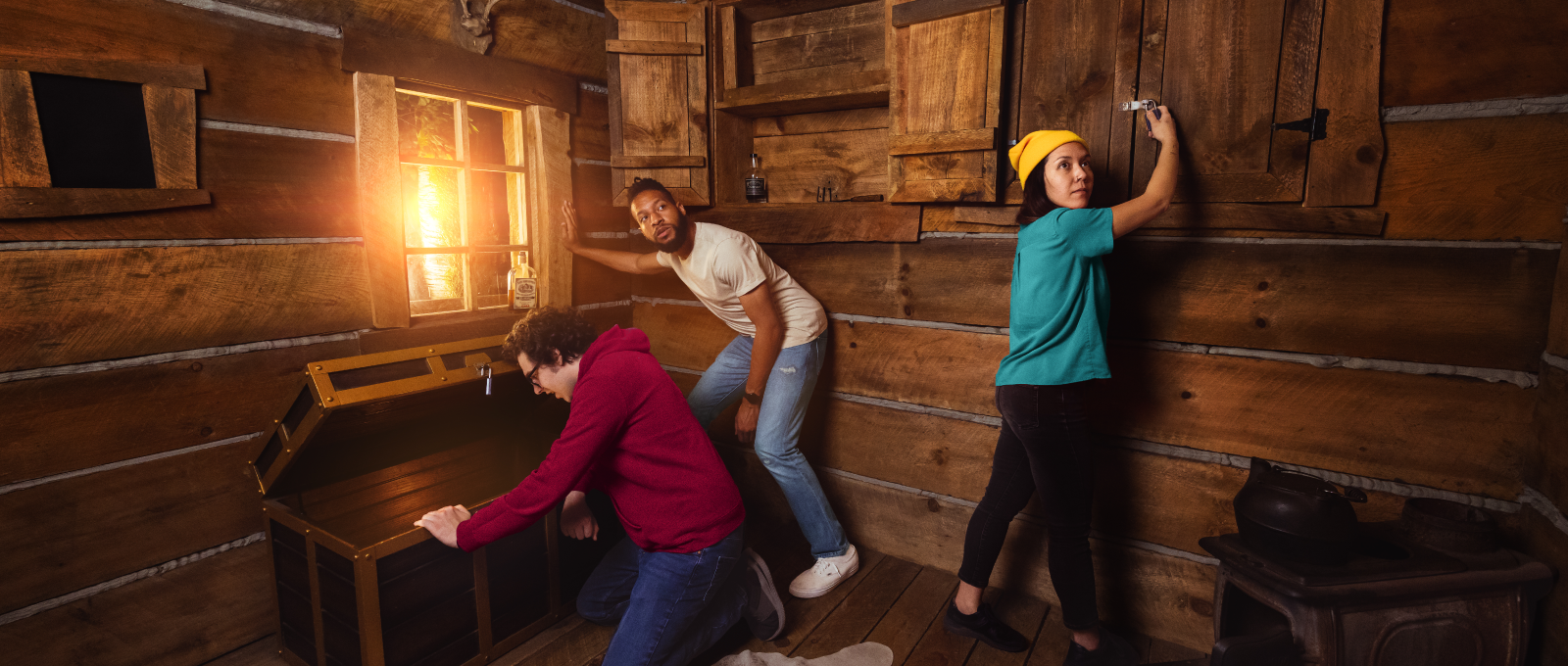Team Methods: How to Collaborate Effectively in an Escape Space
Navigating the complexities of a retreat room requires greater than mere enthusiasm; it calls for a well-coordinated strategy grounded in clear communication, critical function projects, and adept time monitoring. Groups should proactively pay attention to each member's insights, appoint duties that line up with specific staminas, and preserve regular check-ins to make sure focus and prevent redundancy. By promoting an atmosphere that values communication and flexibility, groups can dramatically increase their performance and success prices. The nuances of these strategies can transform the experience, yet how specifically can they be applied to maximize the capacity for success?
Establish Clear Interaction
To facilitate clear communication, it is crucial to designate a central point of contact for details dissemination. Quick, focused updates from each group member can keep the team educated without overwhelming them with info.

Appoint Duties Purposefully
While clear communication sets the structure for effective synergy, assigning roles tactically guarantees that each staff member's staminas are made use of efficiently. In a retreat room circumstance, the time-sensitive and complicated nature of difficulties necessitates an efficient approach to job delegation. By recognizing and leveraging private expertises, groups can maximize their analytical capabilities and enhance general efficiency.
Somebody with a keen eye for information may stand out in finding covert items, while a logical thinker can be better fit to fixing problems. This duty usually needs solid business and interpersonal skills.
Second, ensure that functions are versatile and versatile. As brand-new obstacles arise, the team has to have the ability to pivot, reallocating tasks as needed. This versatility helps preserve energy and stops bottlenecks that could occur because of stiff duty projects.
Ultimately, a critical method to duty assignment not only makes best use of the strengths of each group member however likewise fosters a cohesive atmosphere, driving the group towards a successful getaway.
Use Diverse Skills
Identifying and harnessing the varied skills within your team can substantially raise your performance in a retreat space. Each employee brings one-of-a-kind staminas to the table, and successfully leveraging these capabilities can quicken analytical and improve overall performance. A team member with strong analytical abilities could succeed at figuring out complicated codes or patterns, while one more with eager empirical capacities might swiftly find surprise ideas that others may neglect.
Reliable interaction is essential to using these diverse abilities. Urge staff member to articulate their insights and ideas quickly, guaranteeing that all possible remedies are thought about. This comprehensive approach cultivates a dynamic environment where imagination and important thinking can thrive. In addition, designating tasks that line up with each participant's strengths can avoid traffic jams and make certain that development is constant.
In addition, variety in abilities commonly equates to diversity in believing styles, which is invaluable in a retreat area setup. While some difficulties might require rational thinking and precision, others might gain from creative and lateral reasoning. By recognizing and leveraging this diversity, groups can attend to a more comprehensive variety of difficulties better, thus increasing their possibilities of a successful escape.
Manage Time Successfully

Identify visible puzzles and separate tasks based on team members' staminas, making sure that no one is idle. This practice can help keep the group focused and avoid time from slipping away undetected.
In addition, prevent one-track mind. If a problem is taking as well long, rotate employee or proceed to another obstacle, returning later with fresh viewpoints. Communication is critical-- keep everybody updated on resolved challenges and continuing to be jobs to avoid repetitive initiatives.
Finally, use any kind of hints or ideas moderately but purposefully - best escape room. Knowing when to request aid can conserve important time. By adhering to these time administration concepts, teams can significantly enhance their opportunities of an effective and enjoyable getaway room experience
Debrief and Mirror
Representation is an essential element of group growth and enhancement in the context of escape areas. Once the challenge is completed, whether efficiently or not, it is critical for the team to take part in an organized debriefing session. This procedure enables staff member to analyze their performance, identify staminas, and determine areas for enhancement.
Begin the debrief by reviewing what went well. Highlight details circumstances of efficient communication, problem-solving, and collaboration. Identifying these positive actions reinforces them and encourages their repeating in future challenges.
Next, address the challenges experienced. Discuss minutes of confusion, miscommunication, or inadequate strategies. Motivate an open and useful dialogue where employee can share their viewpoints without worry of objection. This fosters a culture of continual renovation and learning.
Verdict
Finally, effective collaboration in a retreat space is predicated upon clear interaction, look at more info critical function jobs, the reliable usage of diverse abilities, and skillful time management. Regular check-ins and organized debriefings are necessary for preserving Click Here emphasis and promoting continuous renovation. By producing a cohesive and adaptive team atmosphere, the chance of effectively addressing puzzles and attaining the purpose of escaping the area is significantly boosted. This method not only ensures success however additionally advertises cumulative growth and understanding.